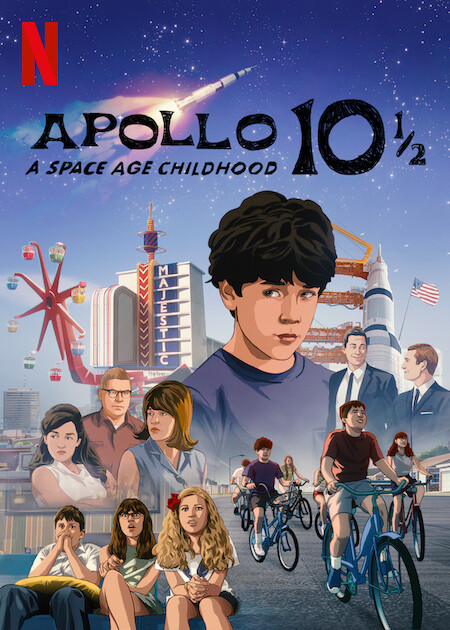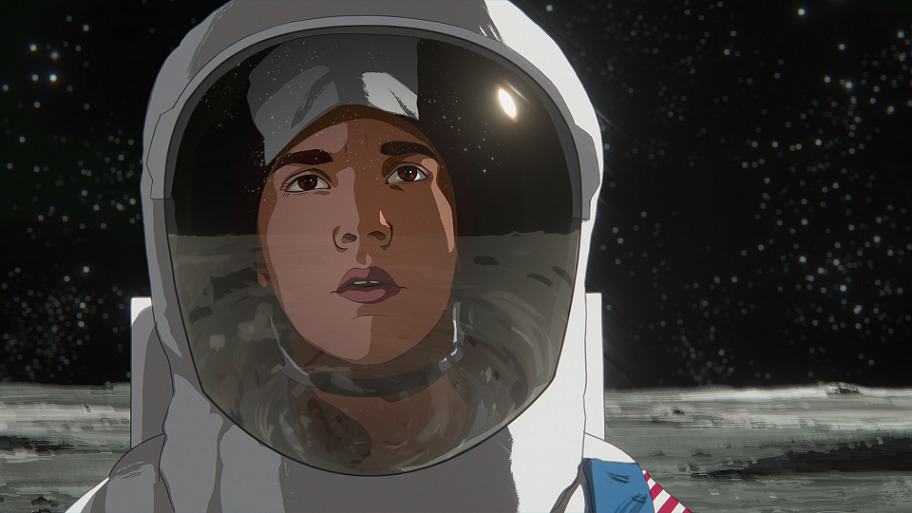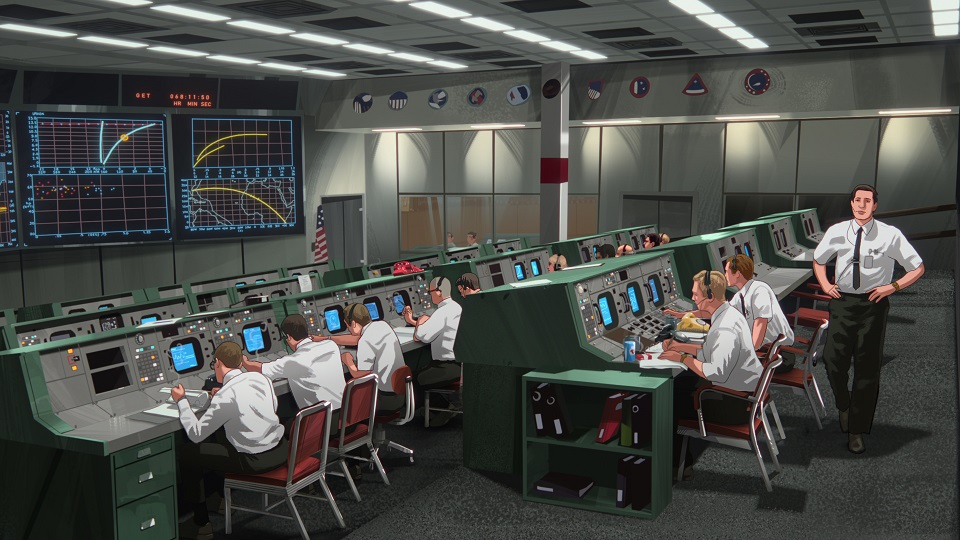
It’s difficult to fully capture the excitement and energy of the space race in the present moment. Scientific advancements have reached a certain point that the idea of traveling outside of the orbit of our planet doesn’t feel that outside the realm of possibility, though it’s also not the focus of those working on the most cutting-edge technology today. But, decades ago, the idea of landing on the moon represented a monumental and incredible step in a future that might be filled with interplanetary colonization and growth far beyond our galaxy. Apollo 10½: A Space Age Childhood captures that sentiment in a way that only filmmaker Richard Linklater could.
Linklater describes this film as “the memory of a fantasy, melded into a re-creation of a time and place.” It plays out as a series of anecdotes and stories, introducing characters and the roles they play in the life of protagonist Stanley, a child enlisted by NASA to undertake a mission that he alone can fulfill due to the small size of the craft that cannot fit an adult astronaut. What the specific plot it pales in comparison to the way that it is told, which is to infuse magic into each moment, with Stanley dreaming of a more adventurous and spectacular life that comes to fruition as he is given an incredible and incomparable opportunity.

The scope of this film and its focus makes sense given Linklater’s previous work. Among the Oscar-nominated filmmaker’s most exhaustive projects is Boyhood, an epic family tale that took twelve years to make, following its actors over that period of time as they aged. He has also used animation to mesmerizing effect before with Waking Life and A Scanner Darkly, utilizing rotoscoping to create a vivid and realistic product whose form only enhances the power of the content being depicted. Never one to stop innovating, Linklater opts for a different approach here, using traditional 2D animation combined with other techniques to make his film feel just right.
There is a degree of autobiography to Apollo 10½, which Linklater credits to his physical proximity to NASA growing up. As a result, this film becomes a chronicle of the events that actually occurred, tracking the progress of the space exploration program, with a bit of imagination mixed in so that a kid would be sought out specifically by NASA to head up and take care of something important and of course entirely confidential. Perhaps Linklater still harbors some hope that this could have happened to a peer who was told he couldn’t tell anyone and therefore didn’t.

Whether all of its events actually occurred or not is of little relevance. It’s the spirit of the times and the possibilities that this film is attempting to capture, and it excels in that department. There’s a simplicity to Stanley’s journey that feels firmly at odds with the meticulous preparation needed for what he does and the rigorous protocols that exist within governmental organizations and departments. Interspersing that with the real history makes this a fully immersive viewing experience, one that fuses hopes and dreams with the reality that does sometimes deliver just as gloriously.
The voice cast of this film contributes to its overall effectiveness. As the adult Stanley, Jack Black functions as the narrator, detailing the things he remembers in a straightforward way. He’s a great choice, a comedian who here isn’t telling jokes but instead infusing his own sense of wonder into his many line readings. Zachary Levi, Josh Wiggins, and others contribute to a great assemblage of talent. For adult space kids who remember the 1960s, Apollo 10½ should be a thoroughly satisfying nostalgia trip, and for those born after that era, it’s an enticing peek back in time.
Grade: B+
Check out more of Abe Friedtanzer’s articles.
Apollo 10½: A Space Age Childhood made its world premiere at SXSW and launches on Netflix on Friday, April 1st.

